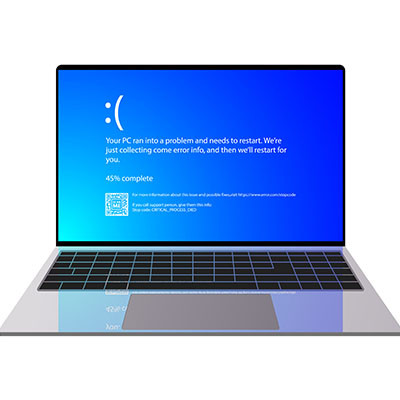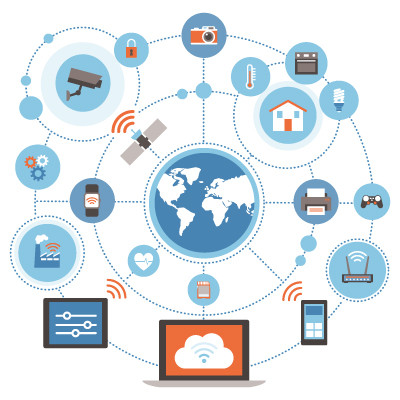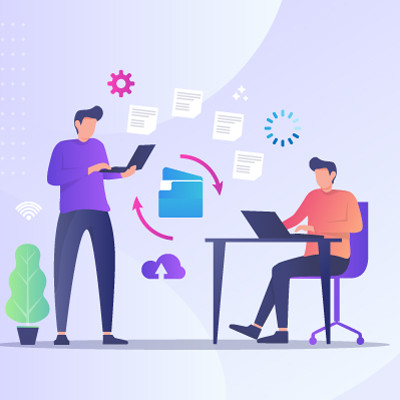If you’re a regular reader of this blog, you’ve probably come across articles on blockchain before. This week, we're shifting gears to explore a new topic: should cryptocurrency, which is enabled by blockchain technology, be subject to taxation by state, federal, and international authorities? Let’s dive into what blockchain is, how it supports cryptocurrency, and the ongoing debate about potential taxation.
Osgood Unlimited Blog
The smartphone market used to be a hallmark of innovation, but nowadays, aside from the folding form factor, smartphone manufacturers have decided that the technology works, more or less, the same. What does this decline in innovation mean for you and your business? It might actually not be all that bad.
Chances are that your business’ technology has gotten more complex in the past few years. This complexity has likely created some confusion on how best to manage your technology. Couple this with the more sophisticated threats that have been developed over that time, and there is a real risk to the welfare of your business coming from the technology you depend on daily. Today’s blog will discuss how increased complexity can be managed competently.
Have you ever had things not go according to plan? It can be an incredibly frustrating experience, especially when assets and business resources are involved. This is also true in the realm of business technology, so today, we want to cover how you can invest in the future of your business without getting too far ahead—including with your IT resources.
If you’ve spent any time online, you’ve likely encountered ads popping up while you’re trying to read articles, watch videos, or scroll through social media. While some ads can be helpful, many people find them disruptive or invasive, which is why ad blockers have become popular. Have you ever wondered how exactly ad blockers work? Let’s break it down.
Artificial intelligence (AI) is rapidly transforming the technology landscape, and mobile devices are at the forefront of this revolution. As smartphones and tablets become increasingly powerful and sophisticated, they are becoming ideal platforms for running AI applications. This trend is driven by several factors, including:
When you think about it, the technology we have today is truly awe-inspiring, simply because it enables us to be so much more productive as we exercise our creativity. All one really has to do to prove its value is to compare the quality of life we enjoy now as compared to almost any time in the past.
However, this does not mean that everyone is using technology to its full capacity and, as a result, suffering some consequential effects. Let’s consider some of these effects to reinforce why it pays to embrace the potential uses of technology fully.
Data fuels business, but we also share a large amount of data even in our personal lives. Even the most benign communications, like chats, requests to stop by the store on your way home, and even memes or pet pictures, are considered data—and where there’s data, there’s a place where it’s stored.
Today’s question: do you know where your data is being stored? And do you know the impact of that storage?
Human resources is not an easy game, as I’m sure your HR representatives would be happy to tell you if asked. Therefore, it is important that they have the tools needed for success today.
By this, we mean information technology that supports the everyday responsibilities and processes that an HR department is charged with completing. Let’s discuss some tools that you should incorporate into your processes.
The recent CrowdStrike outage that disrupted many Microsoft-run systems has made headlines, even if it didn’t affect you directly. With so many organizations relying on Windows, this incident caused an unprecedented number of computer crashes, impacting over 8.5 million systems worldwide. The outage didn’t just cost businesses billions in lost revenue—it also led to the cancellation of 3,000 flights, throwing travel plans into chaos. As the largest outage in history, it served as a stark reminder that the technology we depend on daily isn’t foolproof. Today, we’ll explore key takeaways from the CrowdStrike outage and how businesses can better prepare for such events.
You may have noticed the recent attempts by Google to provide AI-generated answers to your queries. You might not immediately understand why AI is such a prevalent thing in arbitrary technology like search engines, but we assure you that there is a good reason for it—a better user experience—even if it does come with mixed results.
Common knowledge states that the more you put into something, the more you get out of it. Therefore, it stands to reason that you should put as much funding as possible into your most essential resources—such as your IT.
This, however, can be a hard sell to yourself or anyone invested in your company… partners and staff included.
The Internet of Things, or IoT, has transformed how modern businesses operate in 2024. Whether you’re a manufacturer or a healthcare provider, the IoT offers previously impossible applications, from real-time data collection to smarter decision-making. Let’s explore some ways your business can use IoT in 2024.
You might have noticed the mobile technology around you, like smartphones, tablets, and wearables, getting noticeably stronger in recent years. As their strength increases, so too does their power expenditure, demanding more effective batteries and charging technologies as a result. Today, we want to look at the ever-fascinating topic of batteries for mobile technology and how innovations can help to fuel change in device design.
Secure and reliable file sharing has become essential for businesses. It makes collaboration, communication, and better productivity possible. With the increasing prevalence of cyberthreats, however, having a comprehensive plan to ensure the security of your files in transport is extremely important. Let’s explore some of the best practices for secure business file sharing.
All businesses use technology to varying degrees, typically to improve operations or offer innovation through a service or product. SMBs often benefit from the increased use of technology in the business world, as it’s generally quite effective at solving their problems and accessible enough that even companies on a budget can afford it. Let’s look at some opportunities your own business might have in 2024.




















